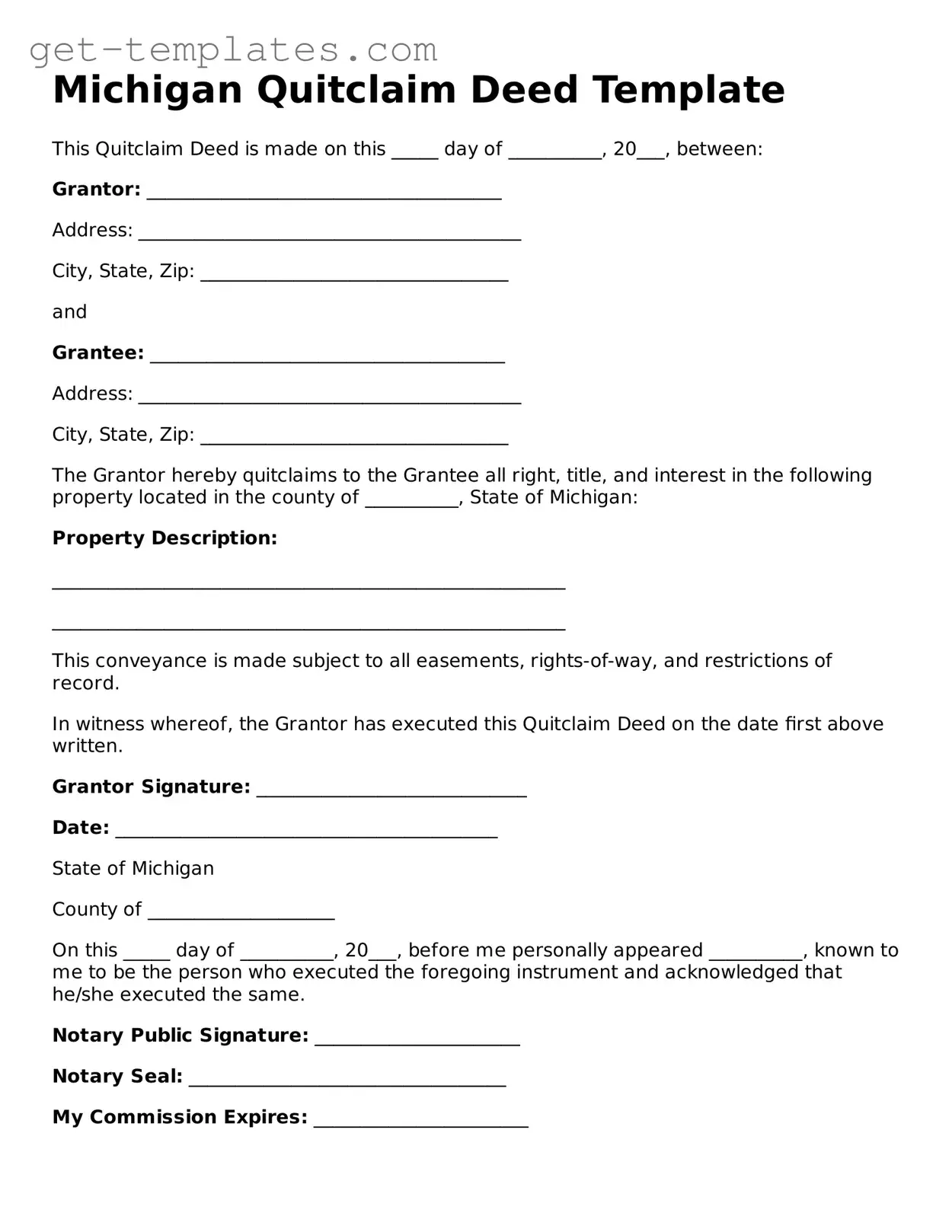Attorney-Approved Quitclaim Deed Document for Michigan
A Michigan Quitclaim Deed is a legal document that allows a property owner to transfer their interest in real estate to another party without making any guarantees about the title's validity. This form is often used in transactions between family members or in situations where the parties know each other well. Understanding its implications is crucial for anyone involved in property transfers in Michigan.
Get Document Online

Attorney-Approved Quitclaim Deed Document for Michigan
Get Document Online
You’re halfway through — finish the form
Finish Quitclaim Deed online — edit, save, download made easy.
Get Document Online
or
⇓ PDF Form
